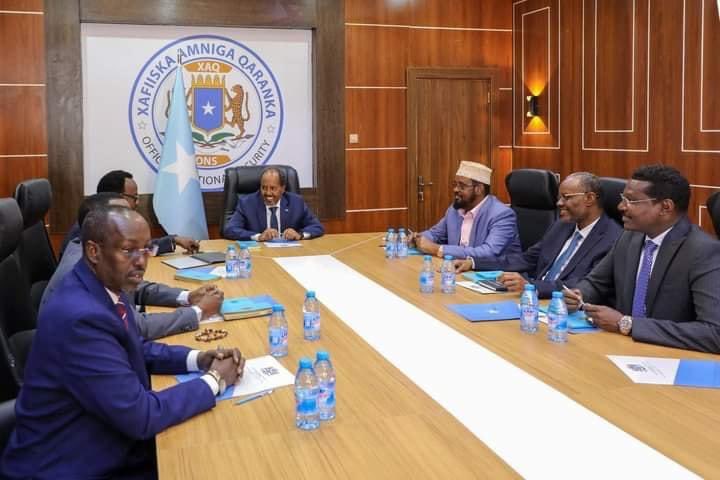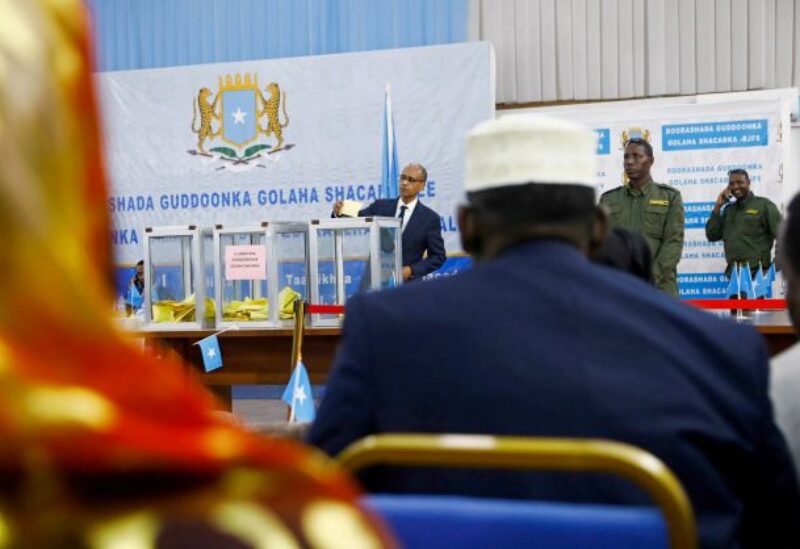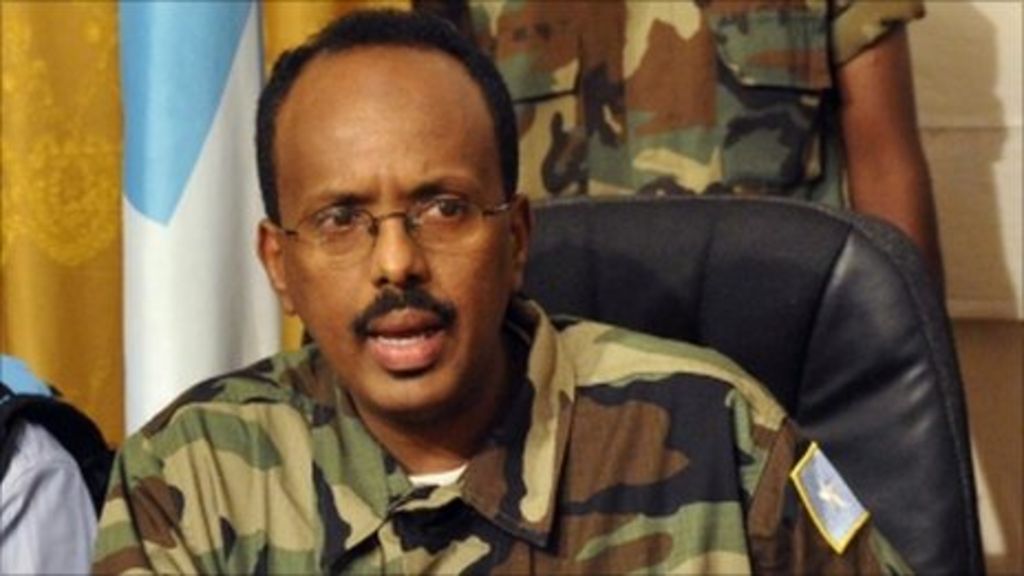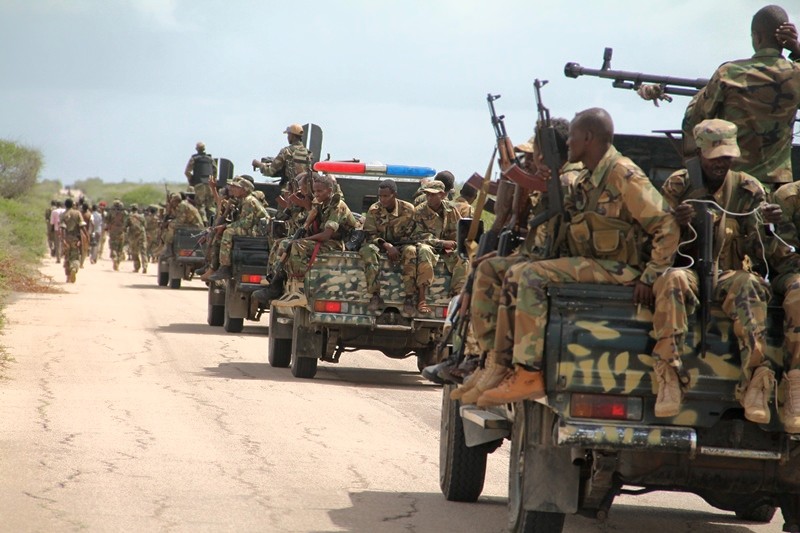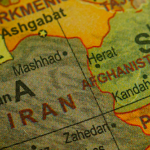With weak state institutions dependent on multiple clans interests, and lack of strong checks and balances Somalia will drift towards autocracy with federal and state power concentrated in one hand, following changes proposed by the National Advisory Council of Somalia.
The National Consultative Council, which includes the federal leaders, including President Hassan Sheikh Mohamud, Prime Minister Hamza Abdi Barre, and Deputy Prime Minister Salah Ahmed Jama, as well as four regional leaders and the mayor of Mogadishu, have agreed to introduce direct elections as early as 2024 and unify the election schedules, and endorsed establishment of a presidential system for the country to replace the current parliamentary system. That brought endless political squabbles between the president and prime minister. The endorsement of a presidential system will require a federal constitutional amendment.
The local council elections will be the first to take place on June 30, 2024. This will be followed by regional parliamentary and regional leadership elections on November 30, 2024. The next presidential elections are instead scheduled for May 2026. The agreement also calls for the implementation of a single presidential ticket in which voters would choose a president and vice-president, effectively quashing the prime minister post.
A first step already had been taken with the initiative of the semi-autonomous northern state of Puntland, which organized its district council elections according to this principle.
The leaders have agreed that there will be only two political parties that compete for power in the country. The current political parties law does not limit the number of political parties. Thus, the two political parties with the majority of votes (in the local elections) will be national political parties competing for seats in Parliament and the President.
The change comes after a fresh pledge in March by President Hassan Sheikh to implement a direct universal one-person, one-vote system. One of the country’s regions (Puntland) already held a vote with universal suffrage last week.
Somalia has not had such a nationwide system since 1969, when the dictator Siad Barre seized power. Instead of direct voting, clan affiliations have held sway in Somalia’s politics in the decades that followed. More influential roles, such as speaker, prime minister and president were allocated among the main groups. After the chaos that followed the fall of Siad Barré in 1991, Somalia’s political system revolved around the many clans and sub-clans that make up its society.
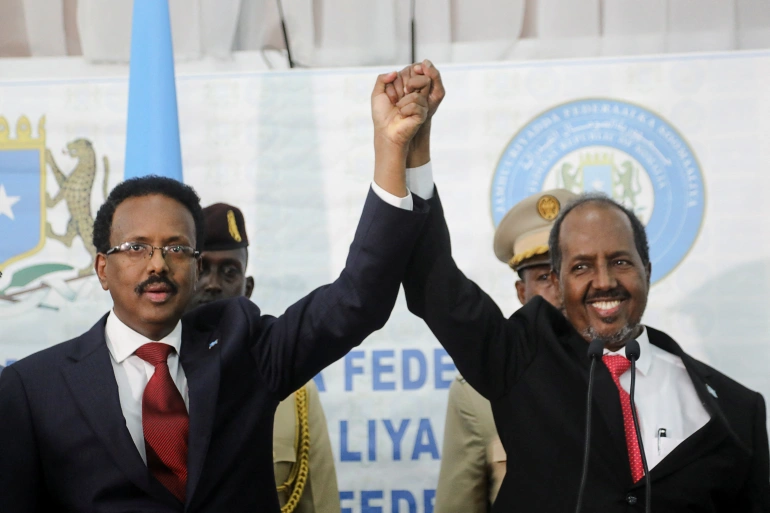
Thus, this is a departure from clan-based power sharing, known as “the 4.5,” which has been used for power-sharing since 2000. That system allowed four main clans to have equal share in parliament, while a group of smaller clans were given half of the share. The last election based on the 4.5 system brought Hassan Sheikh Mohamud to power in May, 2022.
Until now 135 clan elders elect 14,025 delegates who select 275 MPs and 54 Senators who vote on secret. Ballot for the president. The President elects the Prime minister, who appoints the Cabinet.
Clan affiliations have been the organising principle of Somalia’s politics, with influential roles such as speaker, prime minister and president divided among the main groups. State legislatures and clan delegates pick lawmakers for the national parliament, who in turn choose the president.
Elected in May 2022 for a second term, Hassan Cheikh Mohamoud promised in March that the next national and regional elections would be held on the principle of “one person, one vote”. Hassan Sheikh Mohamoud’s predecessor, Mohammed Abdullahi Mohamed, known as “Farmajo”, had stated his desire to organize elections on the principle of “one person, one vote”, but failed to do so, against a backdrop of tensions with certain states.
So, the leaders have agreed that one-person-one-vote elections will take place once every five years. A 15-member national election and border committee will be formed to manage all local, regional and federal elections.
From the one side, changes will centralize the government structure, shifting from the president and prime minister. From another point of view, they will change the current government structure, which had not delivered the expected results to the Somali people.
Somalia has made no progress in the last 30 years. President Hassan added that radical measures were necessary to move forward, as previous governments had failed to take action. He emphasized that the statement issued by the council was not final or binding; it depended on the parliament, which represented the Somali people. His intention was to take bold steps to start discussions, but the final decision would be made by the Somali people through their representatives in parliament. However, there is significant differences between President Hassan’s statement and the actions he took. He does not prioritize reaching consensus and, so it is based on dictatorial tendency. If one or two stakeholders disagree, then instead of allowing time and finding a way to include them in the process, other leaders decide to move forward without the involvement of the opposition.
Not all members of the National Consultative Council agreed on the statement they wanted parliament to discuss. For instance, President Deni of Puntland state did not attend the meeting and did not sign the statement, even though his name was included. He attempted to hold an election without the consensus of all nine registered parties. When he realized that six parties agreed with him but two parties did not want to proceed with his expedited process, he decided to move forward with the election by stating that the majority agreed to the process.


